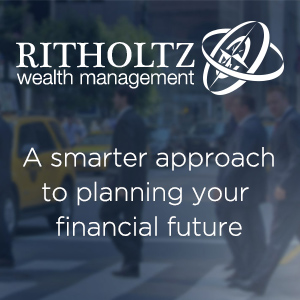Change is happening in the financial markets. Can you feel it? It’s like the ground is shifting beneath my feet. Something new is happening, and maybe, just maybe, this time really is different.
I write this not to be a fearmonger. Change is the only constant, and adaptation is the only means of survival. Financial markets have shifted many times in the past, and most of those shifts were improvements. While meme stocks may be a fad, one can no longer deny that something has permanently changed in the way we use, interact, view, and think about financial markets and risk.
The day last March that the Federal Reserve bought high yield bonds in the open market is the day that ‘risk’ in investing changed forever. Since 2008, we’ve been conducting an experiment to see if monetary policy can save the economy from recessions. Now we’re experimenting with fiscal policy. Families, cities, states, and school districts are stuffed with cash, and they’re not sure how to spend it. Next month, most families with young children will begin receiving monthly checks from the IRS, a pre-payment of the newly expanded childcare tax credit. How much money is enough? How much is too much?
My intern owns shares of AMC stock in her Robinhood account. I asked her how she heard about AMC stock. Her answer – TikTok. While scrolling through TikTok, she learned that fellow Gen Z investors were crowding (HODLing and YOLOing) into shares of the movie theater chain.
Swipe up > Open Robinhood > typc A-M-C > click Buy > resume TikTok consumption. So easy. The stock goes up 300% the next day.
Meme stocks like AMC were flying high again last week, despite a rather explicit warning from AMC’s CEO that the share price is not reflective of reality.
“We believe the recent volatility and our current market prices reflect market and trading dynamics unrelated to our underlying business, or macro or industry fundamentals, and we do not know how long these dynamics will last,”
He literally told investors not to buy the stock.
Meanwhile Bitcoin and Ether, the two largest cryptocurrencies by market cap, dropped almost 50% from recent highs. The online hacker group Anonymous posted a video claiming that Tesla CEO, Elon Musk, was “destroying lives” with his tweets about Bitcoin.
“Millions of retail investors were really counting on their crypto gains to improve their lives,” a Guy Fawkes-masked figure said in the video. “Of course, they took the risk upon themselves when they invested, and everyone knows to be prepared for volatility in crypto, but your tweets this week show a clear disregard for the average working person.”
Bitcoin gains to save the ‘average person’ from what? Getting a regular job, working for honest pay, saving and investing a small percent of it consistently, and earning modest, single digit annual returns in the boring stock market?
These are the largest stories in financial markets this month. Would my college-aged self be able to understand the post I am writing today? Smartphones and social media didn’t exist yet, and I learned that the value of a stock is the sum of it’s discounted future cash flows. HODL!
Everyone can make fortunes trading stocks today. It’s so simple, just ask these TikTok investors.
https://twitter.com/TikTokInvestors/status/1350854473598558213?s=20
Money is abundant, cheap, and easy to get your hands on. “Work” is letting your computer solve the latest equation on the blockchain. I saw a gaming website where people paid a guy to live stream himself 24 hours a day. He was sleeping during the 15 minutes I spent on the site. I’m told when he was awake, he played video games. The crowd of online fans were paying him $40,000 a day to do this. What planet are we on? I know we’re not in Kansas anymore.
The pandemic exacerbated trends that were already underway, pushing forward a decade of technological adoption. We are re-emerging into 2031, and that is both exhilarating and anxiety inducing.
I like to describe our investment philosophy as grounded in principles but without ‘sticking our heads in the sand’. These seismic shifts are likely to test the limits of my ability to accept what is new, and to let go of beliefs that are no longer relevant. I believe adaptability will be the difference between success and failure for investors over the next decade. Adapt to survive, or refuse and die.
The shift may have already claimed its first casualty in Warren Buffett. He gets to keep his title as the greatest investor of all time, for now, but he has shown a complete inability to adapt to the new regime. How many other members of the old school will follow this path to nowhere? And how will we, the brave and open-minded souls decide what is worthy of our investment?
The sands are shifting. I’m uneasy and excited.



